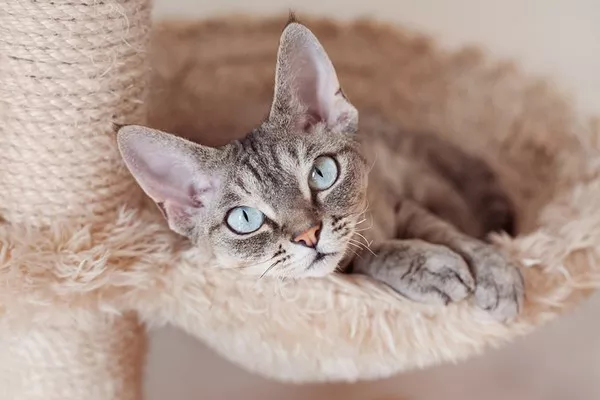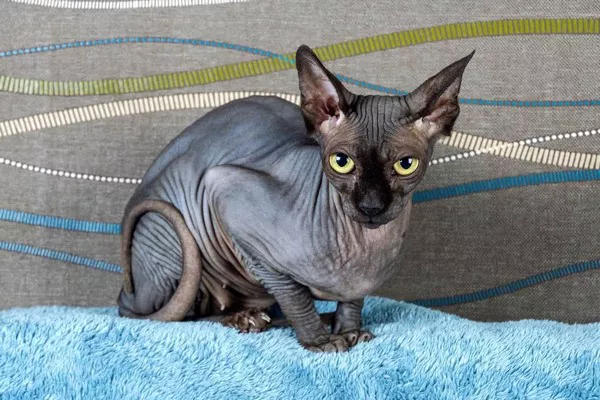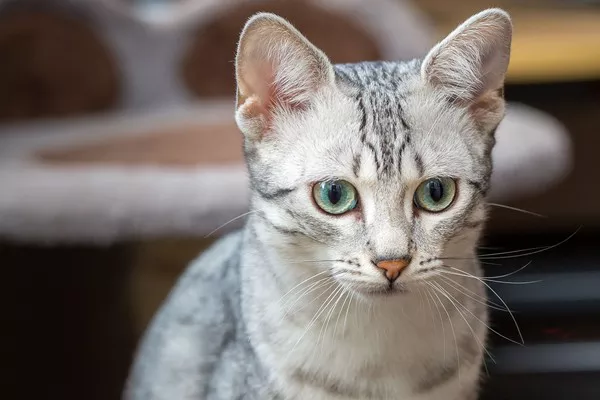As cat enthusiasts, it is essential to familiarize ourselves with the potential health concerns that can affect specific cat breeds. In this article, we delve into the unique health considerations for Devon Rex cats. Known for their distinctive appearance and playful personalities, Devon Rex cats have a few genetic predispositions and general health concerns. By understanding these conditions, owners and veterinarians can take proactive measures to promote the well-being of these beloved feline companions.
Overview of the Devon Rex Breed:
A brief introduction to the Devon Rex breed, highlighting its physical characteristics, temperament, and popularity among cat lovers worldwide.
Genetic Conditions:
1. Hypertrophic Cardiomyopathy (HCM):
Explaining HCM, a common heart disease characterized by thickened heart muscles.
Discussing the genetic link to HCM in Devon Rex cats.
Emphasizing the importance of regular cardiac screenings and early detection.
2. Polycystic Kidney Disease (PKD):
Defining PKD, a hereditary condition resulting in the formation of fluid-filled cysts in the kidneys.
Describing the genetic mutation responsible for PKD in Devon Rex cats.
Highlighting the significance of DNA testing and breeding strategies to reduce the prevalence of PKD.
3. Patellar Luxation:
Elucidating patellar luxation, a condition where the kneecap dislocates from its normal position.
Discussing the possible genetic association and risk factors.
Mentioning treatment options, including surgical intervention if necessary.
Dermatological Conditions:
1. Allergies:
Identifying common allergens that can trigger allergic reactions in Devon Rex cats.
Discussing manifestations such as skin irritation, itching, and gastrointestinal symptoms.
Advising on allergen avoidance and potential treatment options.
2. Skin Infections:
Discussing the susceptibility of Devon Rex cats to fungal and bacterial skin infections.
Highlighting the importance of regular grooming, hygiene practices, and prompt veterinary care.
Respiratory Issues:
1. Upper Respiratory Infections (URIs):
Exploring the increased vulnerability of Devon Rex cats to viral and bacterial URIs.
Providing preventative measures such as vaccinations, proper hygiene, and a stress-free environment.
2. Asthma:
Describing feline asthma, a chronic respiratory condition characterized by airway inflammation.
Discussing potential triggers and management strategies, including medication and environmental modifications.
Gastrointestinal Disorders:
1. Irritable Bowel Syndrome (IBS):
Explaining IBS, a common gastrointestinal disorder causing chronic digestive symptoms.
Discussing dietary considerations, stress reduction, and possible medical interventions.
2. Megacolon:
Introducing megacolon, a condition associated with an enlarged colon and impaired fecal movement.
Emphasizing regular monitoring and early intervention to prevent complications.
Eye Conditions:
1. Progressive Retinal Atrophy (PRA):
Describing PRA, a genetic condition leading to progressive vision loss.
Highlighting the importance of genetic testing and breeding protocols to minimize PRA prevalence.
2. Conjunctivitis:
Discussing conjunctivitis, an inflammation of the conjunctiva, commonly caused by infections or allergies.
Outlining preventive measures, supportive care, and appropriate treatment options.
Conclusion:
Understanding the potential health concerns in Devon Rex cats allows owners and veterinarians to provide proactive care and promote a high quality of life for these unique feline companions. Regular veterinary check-ups, genetic testing, early detection, a balanced diet, proper grooming, and a stress-free environment are essential components of maintaining the health and well-being of these beloved cats. By staying informed and proactive, we can ensure that Devon Rex cats live long, happy, and healthy lives as cherished members of our families.



























